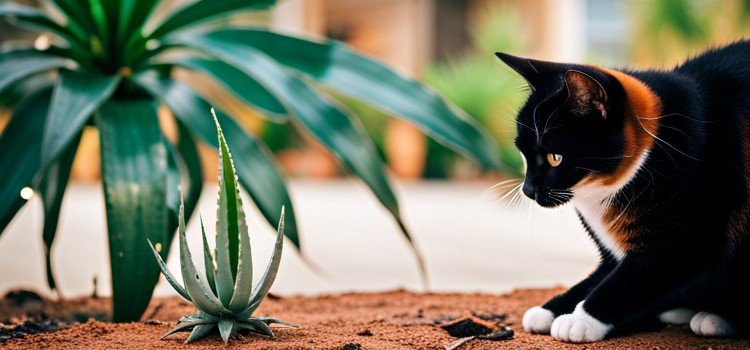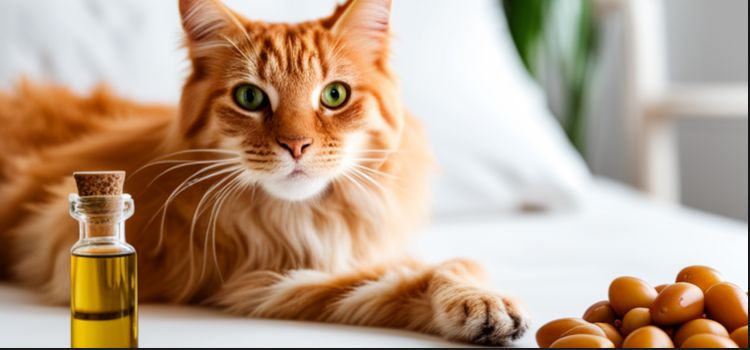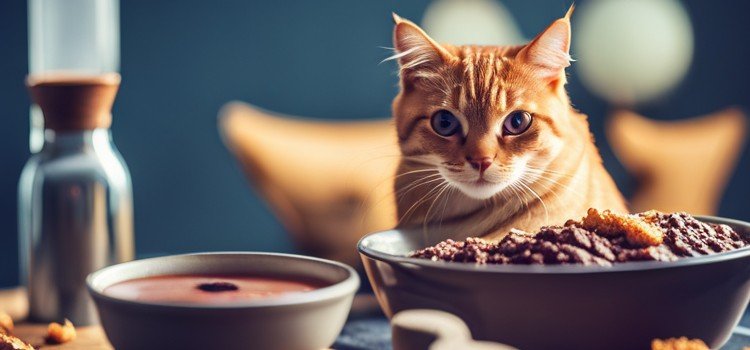As an Amazon Associate committed to the mission of improving the lives of our readers, Live-Clear.com receives a small commission from eligible purchases made through our affiliate links. This revenue enables us to keep producing insightful articles and other material.
Cats, our beloved feline companions, are prone to various health issues as they age. One common ailment that plagues many cats, especially those in their senior years, is kidney disease. It’s a condition that requires careful management and dietary adjustments. As a cat owner, you want to do everything you can to ensure your pet’s health and well-being. This article delves into a specific aspect of managing kidney disease in cats: whether cooked chicken is a suitable dietary option for felines with this condition.

Understanding Kidney Disease in Cats
Before we explore the role of cooked chicken in a cat’s diet when dealing with kidney disease, it’s essential to understand the condition itself. Kidney disease in cats, also known as chronic renal failure, is a progressive condition that affects the functioning of the kidneys.
It occurs when the kidneys are no longer able to efficiently filter waste products from the blood, leading to a buildup of toxins and imbalances in electrolytes. This can result in symptoms such as increased thirst and urination, weight loss, poor appetite, and lethargy. Managing kidney disease in cats involves a combination of medication, fluid therapy, and dietary modifications to support kidneys.
What is Kidney Disease in Cats?
Kidney disease in cats, also known as feline chronic kidney disease (CKD), is a prevalent condition, especially in older cats. It primarily affects the kidneys’ ability to filter waste products and toxins from the blood. Over time, this diminished kidney function can lead to a buildup of waste products, dehydration, electrolyte imbalances, and other health complications.
The disease typically progresses slowly, and its symptoms may not become apparent until the kidneys have already suffered significant damage. Cat kidney disease often manifests as the following symptoms:
- Increased thirst and urination
- Weight loss
- Poor appetite
- Vomiting
- Lethargy
- Bad breath
- Dehydration
Treatment and Management of Kidney Disease
Managing kidney disease in cats involves a combination of strategies, including medication, hydration therapy, and dietary modifications. The goal is to slow the progression of the disease, alleviate symptoms, and maintain a good quality of life for your feline friend.
Regular monitoring of kidney function through blood tests is also essential in managing cat kidney disease. This allows for adjustments in medication and treatment plans as needed. Additionally, providing a stress-free environment and minimizing exposure to toxins can help support the overall health of cats with kidney disease.
Kidney Disease Management and The Importance of Diet
Diet plays a crucial role in the management of kidney disease in cats. The proper diet can help reduce the workload on the kidneys and provide essential nutrients to support your cat’s overall health. Veterinarians often recommend special prescription diets for cats with kidney disease, but some pet owners wonder about the suitability of other food options, such as cooked chicken.
Can Cats with Kidney Disease Eat Cooked Chicken?
Cooked chicken is a typical human food that many cat owners consider offering to their pets. It’s relatively easy to prepare and can be a tasty treat. But when it comes to cats with kidney disease, it’s essential to exercise caution.
Cooked chicken can be part of a cat’s diet, but it should not be the sole or primary source of nutrition for a cat with kidney disease. The following is a list of some of the reasons why this is the case:
- Protein Content
Cats require a specific amount of protein in their diet, but too much protein can put additional strain on their kidneys. High-quality protein sources are essential for cats with kidney disease, but it’s vital to ensure that the protein is easily digestible. Cooked chicken can be an excellent source of protein for cats, but it should be part of a balanced diet that meets your cat’s specific nutritional needs.
- Nutrient Balance
A cat with kidney disease may have altered nutrient requirements. Commercial prescription diets for kidney disease are specially formulated to provide the right balance of nutrients and manage the condition. These diets are typically low in phosphorus and contain added essential nutrients such as omega-3 fatty acids, B vitamins, and antioxidants. While cooked chicken can provide some of these nutrients, it may not offer the complete profile for cats with kidney disease.
- Phosphorus Levels
One of the primary concerns with kidney disease in cats is the buildup of phosphorus in the bloodstream. High levels of phosphorus can exacerbate the condition. Many prescription kidney diets are designed to be low in phosphorus, which can be challenging to achieve with regular home-cooked meals. It’s essential to consult with your veterinarian to determine the appropriate phosphorus levels in your cat’s diet.
Feeding Guidelines
If you decide to include cooked chicken in your cat’s diet, it should be part of a balanced and controlled meal plan. Here are some guidelines to follow:
- Consult with your veterinarian: Before making any dietary changes, consult with your vet to determine the specific nutritional needs of your cat and discuss suitable options.
- Portion control: Ensure that cooked chicken is offered in moderation. It is not something that should make up the bulk of your cat’s diet.
- Balanced nutrition: A well-balanced diet for a cat with kidney disease may include a combination of prescription kidney diets and other suitable options, such as cooked chicken.
- Monitoring: Regularly monitor your cat’s health and consult with your veterinarian for any necessary adjustments to the diet.
- Hydration: Encourage your cat to drink more water, as adequate hydration is essential for kidney function. Consider providing a water fountain or wet cat food to increase water intake.
- Supplements: In some cases, your veterinarian may recommend adding supplements to your cat’s diet, such as omega-3 fatty acids or probiotics, to support kidney health. However, it is essential to consult with your veterinarian before adding supplements to ensure they are safe and appropriate for your cat’s condition.
- Weight management: It is vitally essential for cats with kidney disease to keep their weight at a healthy level. Your veterinarian may guide portion control and feeding frequency to help manage your cat’s weight and prevent any.

Conclusion
When managing kidney disease in cats, diet is a critical component of their care. Cooked chicken can be a part of their diet, but it should not replace specialized prescription diets recommended by veterinarians. These diets are formulated to support kidney health and manage the condition effectively. If you choose to include cooked chicken in your cat’s diet, do so with care, ensuring it’s part of a balanced and controlled meal plan that meets your cat’s specific nutritional requirements. Always consult your veterinarian for personalized guidance on managing kidney disease in your beloved feline companion.
Frequently Asked Questions (FAQ)
Feeding your cat raw chicken can be risky, as it may contain harmful bacteria such as Salmonella and E. coli, which can be dangerous for both cats and humans. Cooking chicken eliminates these risks, making it a safer choice.
Cats with kidney disease may benefit from prescription kidney diets, which are specifically formulated to support their unique dietary needs. Additionally, your veterinarian may recommend other options, such as cooked egg whites or lean meats like turkey, as occasional treats.
Yes, you can prepare cooked chicken at home for your cat, but it’s crucial to do so safely. Make sure that the chicken is cooked all the way through without using any seasonings or other additions. Remove bones and serve them in small, manageable pieces.
Yes, besides controlling protein and phosphorus intake, cats with kidney disease may require other dietary adjustments, such as a reduction in sodium levels. Your veterinarian will guide the specific dietary needs of your cat.
Commercial cat treats should be given in moderation, and it’s important to choose treats that are low in phosphorus and other harmful additives. It’s best to consult with your vet to determine which treats are suitable for your cat’s condition.
If you choose to include cooked chicken in your cat’s diet, do so with care, ensuring it’s part of a balanced and controlled meal plan that meets your cat’s specific nutritional requirements.
Amazon and the Amazon logo are trademarks of Amazon.com, Inc, or its affiliates.



